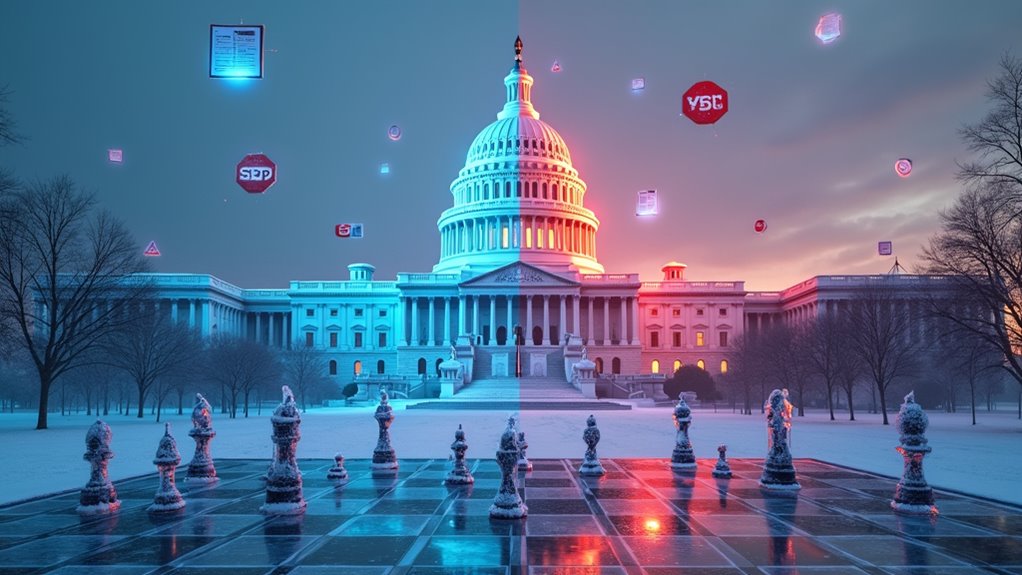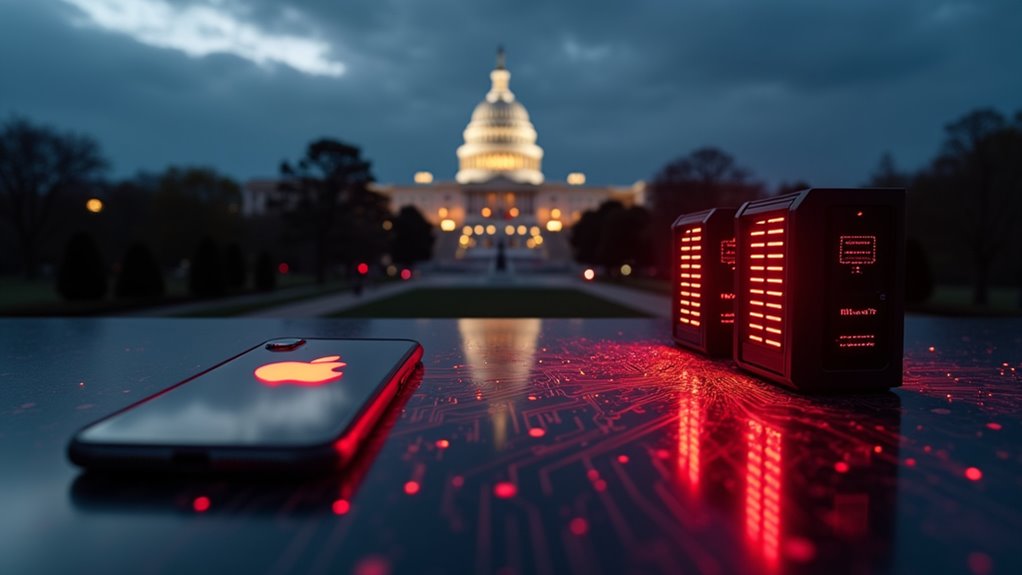Donald Trump’s newest tech bombshell? A bill halting every state-level AI rule—yes, all of them—for ten years, *no backsies*. Tech bros are celebrating the regulatory “Thanos snap,” hoping for innovation without paperwork. Privacy hawks? Less thrilled, picturing algorithms running wild, unchecked by local rules, even in healthcare. Meanwhile, international partners are giving us side-eye, wondering if we’re setting the new global baseline. Will this decade-long AI free-for-all bring genius or disaster? Stick around to see where this leads.
Even in the wild world of tech policy, few moves turn heads quite like a good old-fashioned federal freeze—and that’s exactly what Trump’s new bill is serving up for AI regulation. Forget the slow churn of debate: if this bill passes, it’s a ten-year “hands-off” command for every state and local government itching to write their own AI rules. Yes, you read that right. States like California and Colorado, which just rolled out shiny new healthcare AI laws? Put those on ice. This bill wants a clean slate, no patchwork, no exceptions.
Here’s what’s on the table:
- All state AI laws—current, future, or fever-dreamed-up—get benched for a decade.
- Healthcare AI statutes? Also out. (Sorry, HIPAA fans.)
- The ban kicks in immediately, no waiting for 2025. Legal challenges may arise as states push back against the sweeping preemption of their regulatory authority.
Industry groups are throwing confetti. To them, it’s a magic shield against what they call “regulatory fragmentation”—which, in human-speak, means not having to follow 900 different state rules that change faster than TikTok trends. Tech startups, especially the mom-and-pop AIs, are sighing in relief. This response mirrors global concerns about the compliance gap between rapidly evolving AI technology and existing regulatory frameworks.
But not everyone’s invited to the celebration. Consumer advocates are side-eyeing the move, worried that in the rush to avoid red tape, critical safety nets will be left in the dust. Vulnerable populations could end up as beta testers for unregulated algorithms. Some critics warn this “strategic pause” is more like hitting snooze on the fire alarm. The bill also has potential diplomatic and economic implications, as U.S. trading partners may view the regulatory freeze as setting a precedent for how AI is governed globally.
Trump’s approach isn’t exactly subtle. His January executive order scrapped Biden-era AI policies and instructed his science advisor to draft new, presumably ideology-free AI guidelines within 180 days. The message? Deregulate first, ask questions later.
The long game, it seems, is federal preemption—one big, unified set of AI rules, eventually. Until then, it’s open season for AI innovation, compliance headaches minimized, and a whole lot of popcorn-worthy debate about whether this freeze is a genius move or a regulatory cliffhanger.
Stay tuned—this one’s not going off-script anytime soon.









